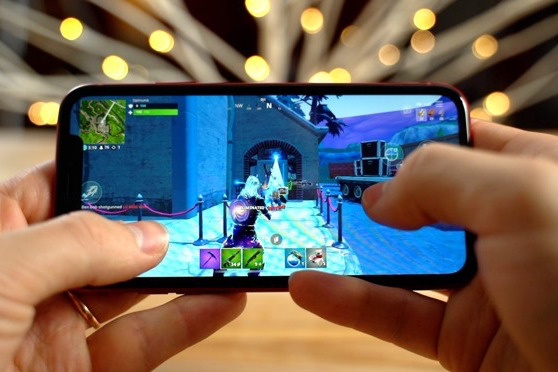The member states of the World Health Organization have voted to adopt a revised list of diseases which includes addiction to video games — including smartphone titles — as a mental health disorder.
At its 2019 annual general meeting in Geneva, Switzerland, the member countries of the World Health Organization have officially recognized an addiction to gaming on smartphones and other devices as an international disease. The World Health Assembly voted to accept the revised list, called ICD-11, which nations take into account when planning public health strategies.
"Studies suggest that gaming disorder affects only a small proportion of people who engage in digital- or video-gaming activities," said the World Health Organization in a statement. "However, people who partake in gaming should be alert to the amount of time they spend on gaming activities, particularly when it is to the exclusion of other daily activities."
"Understanding what makes people sick, and what eventually kills them, is at the core of mapping disease trends and epidemics, deciding how to programme health services, allocate healthcare spending, and invest in improving therapies and prevention," continued the World Health Organization. "ICD-11 has been updated for the 21st century and reflects critical advances in science and medicine."
Journalist Rintaro Hosokawa covered the Assembly for the Nikkei publication and reports that the organization has further defined the symptoms of the disease. "According to WHO, [sufferers] cannot control the time and frequency of playing games by themselves," said Hosokawa (in translation), "[They] give top priority to the game and continue even through the problem is happening for more than 12 months."
ICD-11, or the International Statistical Classification of Diseases and Related Health Problems, will come into effect on January 1, 2022.
The decision comes as Apple is both stepping up its Screen Time efforts to help people understand how long they spend on their iPhones, and launching its gaming Apple Arcade.
 William Gallagher
William Gallagher




-xl-m.jpg)



 Thomas Sibilly
Thomas Sibilly
 Wesley Hilliard
Wesley Hilliard
 Christine McKee
Christine McKee
 Amber Neely
Amber Neely

 Malcolm Owen
Malcolm Owen

 Mike Wuerthele
Mike Wuerthele








13 Comments
Just because an addiction may have a physiological element doesn’t make it a disease. Addictions like video games are little more than a choice. A choice is not a disease. The choice may have a physical element, but resisting urges (which always has a physical element) is called self control. By saying these things are diseases we reduce the significance of choice, that ‘it’s not my fault’. The victim mindset is ruining cultures that adhere to it. It seems to me not exercising self control in the face of temptation should be considered a disease.
My problem with this article is that the link provided takes me to a page that does not have the quote indicated, nor does searching their website find the quote. Can anyone find the page?
On another issue, my problem with this study is that there doesn't seem to be some objective measurement of the condition. Are we lay people not qualified to make the assessment? Is it really a subjective assessment in the hands of a few professionals? I mean, what does "to the exclusion of other daily activities" mean? Which activities? Is this a totally subjective disease?
On another issue, could an American (I am not American) living with this disease be denied access to a gun?
I'm pretty sure that the guy who died in an internet cafe somewhere in Asia after playing for 5 days straight had some sort of addiction. :#
Well, they sued the tobacco companies, and they sued the drug companies, and they sued the car makers, and they sued liquor makers. so here come the lawsuits claiming insidious addiction caused by smartphone makers. It’s only a matter of time before warning labels are mandated on all mobile devices. Maybe they’ll ban their advertisement on television. Sound radical, even delusional. Wait, you’ll see.